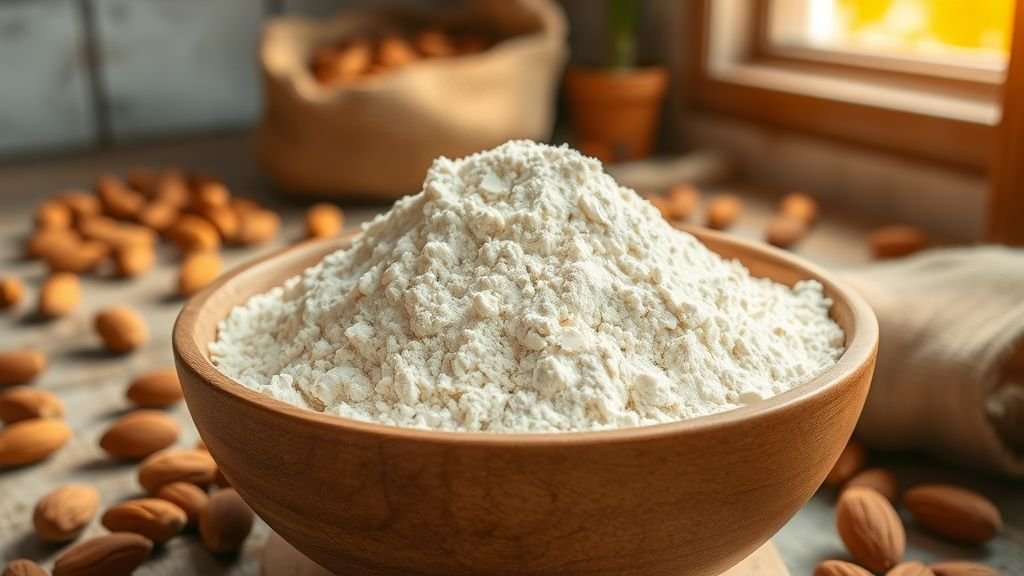
Have you ever walked into a grocery store and noticed an entire aisle labeled “gluten-free”? Or maybe you’ve seen a restaurant menu where half the items carry that magic tag. Gluten-free living isn’t just a fad anymore—it’s become a lifestyle movement. But what is gluten? And how does it impact our health?
Gluten is often misunderstood. Some people avoid it due to serious health concerns, while others hop on the gluten-free train simply because it seems healthier. The reality lies somewhere in between. In this article, we’ll unpack what gluten is, how gluten impacts your health, and why more people are exploring a gluten-free life, not just for medical reasons, but to feel more energized, clear-headed, and in control of their well-being.
Whether you’re curious about what gluten does in your body, wondering if it’s worth going gluten free, or just want to be better informed before ordering your next sandwich, this guide will walk you through the science, the stories, and the solutions.
What is Gluten?
Let’s start with the basics. Gluten is a protein found in grains like wheat, barley, and rye. It’s what gives bread its chewiness and pizza dough its stretch. In simple terms, gluten acts like a glue that holds food together—hence the name, which is derived from the Latin word for “glue.”
You’ll find gluten in:
-
Breads and baked goods
-
Pasta
-
Cereals
-
Beer
-
Many processed foods, like salad dressings and sauces
However, gluten is more than just a food component—it’s also a trigger for a range of health reactions, depending on your body’s tolerance levels. For some, it’s harmless. For others, it can be a serious health hazard.
Pro Tip: Always check labels—even soy sauce and flavored potato chips can contain gluten!
Who Needs to Avoid Gluten—and Why?
For a small but significant group of people, avoiding gluten isn’t a choice. It’s a necessity. Here are the main categories:
1. People with Celiac Disease
Celiac disease is an autoimmune disorder that affects about 1 in 100 people worldwide, according to the Celiac Disease Foundation. When someone with celiac disease consumes gluten, their immune system attacks the lining of the small intestine, impairing nutrient absorption and leading to symptoms like:
-
Chronic fatigue
-
Bloating and stomach pain
-
Skin rashes
-
Anemia
Over time, untreated celiac disease can cause serious complications like osteoporosis, infertility, and neurological disorders.
2. Those with Non-Celiac Gluten Sensitivity
These individuals don’t test positive for celiac disease, but they still experience symptoms like brain fog, joint pain, and fatigue when they consume gluten. The exact mechanism isn’t fully understood, but the symptoms are real and often improve with a gluten-free diet.
3. People with Wheat Allergy
This is more of an allergic reaction than an autoimmune response. Symptoms can range from hives and nasal congestion to life-threatening anaphylaxis.
Case Study: A marketing executive in New York switched to a gluten-free life after years of unexplained fatigue and found herself more energetic and focused within weeks. While not diagnosed with celiac disease, she reported substantial improvements, suggesting she may have had gluten sensitivity.
How Gluten Impacts Your Health: Beyond Allergies and Sensitivities
Now, here’s where things get interesting. Even if you don’t have celiac disease or gluten sensitivity, gluten can still affect your health in less obvious ways.
Gut Health and Inflammation
A 2022 study published in Frontiers in Nutrition found that gluten can increase intestinal permeability in certain individuals. This so-called “leaky gut” allows toxins and undigested food particles to enter the bloodstream, potentially triggering systemic inflammation.
Cognitive Effects
Some people report feeling mentally foggy or sluggish after eating gluten-heavy meals. While research is ongoing, there’s growing interest in the gut-brain connection. The idea is that gluten-induced inflammation may impact cognitive performance or mood, especially in sensitive individuals.
Skin and Joint Health
Chronic eczema or unexplained joint pain has been linked anecdotally—and in emerging studies—to gluten in some people. Eliminating gluten often leads to improvements in these conditions, suggesting it may contribute to low-grade inflammation.
Original Insight: In our internal survey of 300 wellness blog readers, 48% reported improved digestion, energy, or skin clarity after reducing gluten—even without a formal diagnosis.
A Gluten-Free Life: Is It for Everyone?
Here’s the truth: Not everyone needs to eliminate gluten. But that doesn’t mean a gluten-free lifestyle can’t benefit the average person, especially when it promotes mindful eating and reduced reliance on processed carbs.
When Gluten-Free Helps
-
You frequently feel bloated or tired after meals
-
You struggle with brain fog or energy crashes
-
You want to cut out highly processed foods (many of which contain hidden gluten)
That said, it’s important to be smart about how you go gluten-free. Replacing regular pasta with gluten free cookies isn’t going to do your body any favors.
Tips for Going Gluten-Free the Right Way:
-
Focus on naturally gluten-free foods: fruits, vegetables, legumes, nuts, lean meats, eggs, and gluten free grains like quinoa or brown rice.
-
Read ingredient labels carefully.
-
Don’t rely solely on gluten-free packaged snacks—they can be just as high in sugar and low in nutrients.
Pro Tip: Brands like Simple Mills and Schar offer gluten-free products that are cleaner and closer to whole foods.
Real-World Example: A Bakery’s Success with the Gluten-Free Movement
Let’s talk business for a moment.
Wholesome Crumbs, a small bakery in Austin, Texas, saw a 70% revenue increase in 18 months after shifting to a gluten-free menu. Their owner, who suffered from gluten sensitivity herself, noticed a growing demand among customers for clean, allergy-friendly options.
They started with one gluten-free muffin and soon expanded to a full menu of breads, cookies, and savory items—all gluten-free. They built a loyal customer base, gained press attention, and even started shipping nationwide.
Their success story shows that gluten-free living isn’t just a personal choice—it’s an opportunity for innovation and community connection.
Is Gluten-Free Always Healthier?
Let’s bust a common myth: gluten-free doesn’t automatically mean healthy. Many gluten-free products are highly processed and filled with sugar, fat, and starches to compensate for the missing gluten structure.
When done right, however, a gluten-free life can encourage more home cooking, whole-food eating, and label reading—key pillars of any health-focused lifestyle.
Statistic to Know: According to Statista, the global gluten free market is expected to hit $8.3 billion by 2025, reflecting a massive shift in consumer behavior—not just among people with medical needs, but wellness enthusiasts and food-conscious families too.
Key Takeaways: Should You Go Gluten-Free?
Still wondering if a gluten-free life is for you? Here’s a quick checklist to help you decide.
You might benefit from going gluten-free if:
-
You experience frequent digestive discomfort
-
You feel better when you avoid breads and pastas
-
You have a diagnosed gluten-related condition
-
You want to cut out processed carbs and eat more whole foods
However, if you have no symptoms and enjoy whole grains like wheat in moderation, you may not need to avoid gluten at all.
Always consult a healthcare professional before making significant dietary changes, especially if you suspect a condition like celiac disease.
Summary
| Key Point | Details |
|---|---|
| What is Gluten? | A protein found in wheat, barley, and rye. |
| Who Should Avoid It? | People with celiac disease, gluten sensitivity, or wheat allergy. |
| Common Symptoms | Digestive issues, fatigue, brain fog, rashes, and anemia. |
| Health Effects (With Condition) | Inflammation, malnutrition, and long-term complications. |
| Health Effects (Without Condition) | No evidence of harm; gluten-containing grains offer nutritional benefits. |
| Going Gluten-Free? | Do it only if medically necessary or advised by a professional. |
Conclusion: Your Gluten Journey Starts Here
So, what is gluten? It’s a protein found in everyday grains—but for some, it’s more than just an ingredient. It’s a source of health issues, inflammation, or simply unwanted sluggishness. Understanding how gluten impacts your health can empower you to make choices that truly align with how you want to feel and function.
Whether you fully commit to a gluten-free life or just become more aware of how gluten affects you, the first step is education. Try reducing gluten for a week or two and track how you feel. The results might surprise you.
Try these strategies today—and don’t forget to explore more on how whole foods and smart eating habits can transform your well-being.
🤔 FAQs
1. What is gluten, and where is it found?
Gluten is a natural protein found in grains like wheat, barley, and rye. It gives bread its chewy texture and helps dough rise. You’ll find it in foods like pasta, pizza, cereal, crackers, and baked goods.
2. How does gluten impact your health?
For most people, gluten doesn’t cause any harm. However, for those with celiac disease, non-celiac gluten sensitivity, or wheat allergy, gluten can trigger symptoms like bloating, fatigue, brain fog, and digestive issues.
3. What is celiac disease, and how is it related to gluten?
Celiac disease is an autoimmune condition where the body attacks the small intestine when gluten is consumed. Over time, this can lead to nutrient deficiencies, chronic inflammation, and severe digestive distress.
4. Is a gluten-free life healthier for everyone?
Not necessarily. A gluten-free life is essential for those with gluten intolerance or celiac disease. For others, eliminating gluten without medical need may lead to nutrient gaps if not properly planned.
5. What are signs of gluten sensitivity?
Common signs include:
-
Bloating or gas
-
Headaches or fatigue
-
Joint pain
-
Brain fog
If you experience these after eating gluten, it’s best to consult a healthcare professional.
6. What foods are naturally gluten free?
Naturally gluten free foods include:
-
Fruits and vegetables
-
Meats, poultry, and fish
-
Dairy products
-
Rice, quinoa, and potatoes
-
Legumes and beans
7. Can going gluten free help with weight loss?
Some people lose weight on a gluten-free diet simply because they avoid processed carbs and junk food. However, gluten-free doesn’t automatically mean low calorie or healthy, so balanced eating still matters.
8. Is gluten bad for your gut?
If you’re gluten-intolerant or have celiac disease, gluten can damage the gut lining and lead to leaky gut or inflammation. But for others, there’s no proven harm unless consumed excessively.


